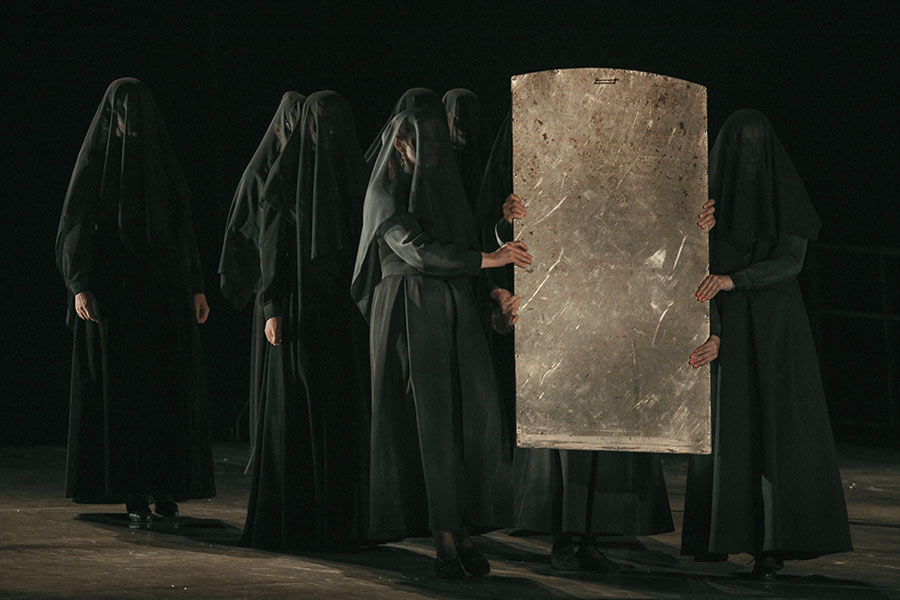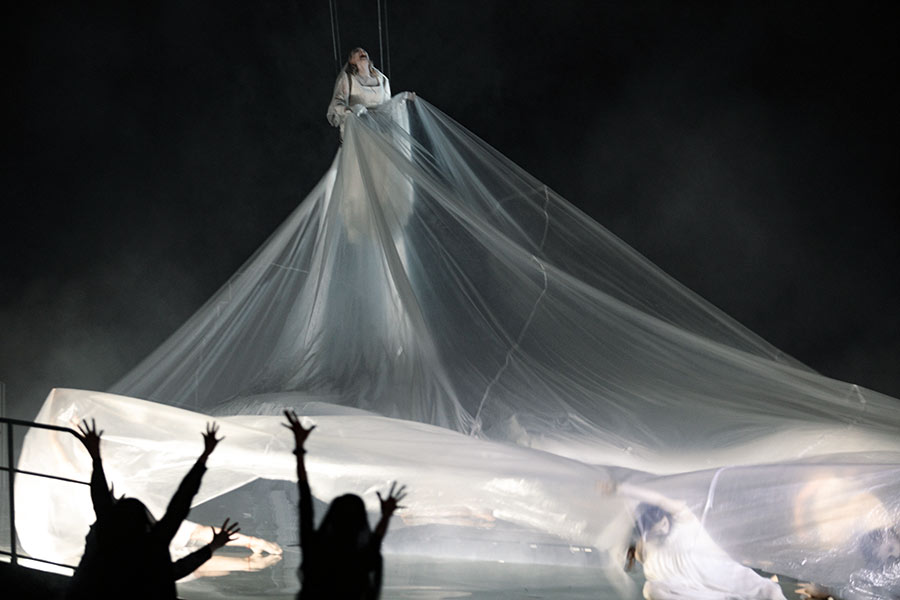 Bolshoi Theatre of Belarus
Bolshoi Theatre of Belarus
Bolshoi Theatre of Belarus
Bolshoi Theatre of Belarus
 Bolshoi Theatre of Belarus
Bolshoi Theatre of Belarus
Bolshoi Theatre of Belarus
Bolshoi Theatre of Belarus
┬Ā
Now the name of Puccini has become virtually synonymous with all that is most representative of opera: Puccinian passions, Puccinian melodicism, Puccinian vocal. The fact that his operas firmly hold leading positions in the repertoire of the most famous stages of the world, along with of the composerŌĆÖs most popular quotes ŌĆō ŌĆ£God touched me with his little finger and said, ŌĆśWrite for the theatre and only for the theatreŌĆØ ŌĆō convince any modern listener that there is no and cannot be any doubt about the genius of Puccini.
┬Ā
However, the path of the composer was not easy. O. Levasheva, a researcher of PucciniŌĆÖs works, wrote: ŌĆ£Among the masters of the opera genre that Italy has given to the world, Puccini can safely be called a composer of a rare, unusual fate. The first operas of the 1880s, created by a very young musician [...]. Long years of silence and searching for his own style. Unexpected ascent in Manon Lescaut. The enormous success of La boh├©me and subsequent Tosca, Madama Butterfly. Fervent love of theatregoers, a storm of delight in operatic societies throughout the world... And at the same time harsh reviews from experts who immediately excluded the composer from the category of great and categorically removed him from the sphere of high, progressive art of modern time. Public recognition ŌĆō and a kind of ostracism in the world of the musical elite, world fame, a heavy stigma of inferiority, second rate!┬╗
┬Ā
PucciniŌĆÖs works received ambiguous reviews from professionals even after his death, which did not prevent his operas from eventually winning their right to universal recognition.
┬Ā
In the repertoire of the Bolshoi Theatre of Belarus, PucciniŌĆÖs name appeared in 1937, when Tosca was staged for the first time (conductor M.Schneiderman, director P.Zlatogorov, designer S.Gerstein, chorus master A.Stepanov). In 1940, the Puccinian repertoire was supplemented by Madama Butterfly (conductor M.Schneiderman, director P.Zlatogorov, designer S.Nikolaev, chorus master A.Belsky), and in 1968 La boh├©me appeared on our stage for the first time (conductor T.Kolomiytseva, director D.Smolich, designer A.Grigoryants, chorus master A.Kogadeev, choreographer V.Burtsev). Since their appearance, these operas remain almost constantly in the theatreŌĆÖs repertoire, being given new performing and directorial interpretations (to date, La boh├©me is presented in its third interpretation, Tosca in the seventh, and Madama Butterfly is now one of the valuable rarities, the oldest production of the theatre: the latest version has been in the repertoire since 1953).
┬Ā
In 21st century, the Belarusian audience enjoyed PucciniŌĆÖs Gianni Schicchi (a one-act comic opera was staged during the reconstruction of the theatre on the stage of the House of Officers in 2006 by conductor N.Koliadko and director A.Nordstrem) and the exotic legendary Turandot. The latter existed first in the form of a concert performance (conductor V.Volich, 2000), and two years later a full stage version was produced (conductor V.Volich, director G.Galkovskaya, designer L.Goncharova, costume designer E.Grigoruk, chorus master N.Lomanovich, choreographer O.Karnach); after the reconstruction of the theatre, this grandiose epic was re-embodied in 2013 (conductor V.Ploskina, director M.Pandzhavidze, set designer I.Grinevich, costume designer Y.Matskevich, chorus master N.Lomanovich).
┬Ā
The year 2020 was marked by the appearance of a new title from the Puccinian heritage, and this title is remarkable in several ways. Firstly, it is a rarely performed opera, which is not often found in the repertoire worldwide. Secondly, this is the composerŌĆÖs first opera, listening to which we can literally plunge into the sound and image atmosphere of the sunset of romanticism, when PucciniŌĆÖs talent matured.
┬Ā
The musical director of the opera Ivan Kostyakhin says: ŌĆ£Le Villi is PucciniŌĆÖs first opera, and itŌĆÖs very exciting to deal with something from which it all started. In the opera, you can literally feel how he was groping for his material. After all, he was not particularly keen on the idea of writing it, and prepared the score in a hurry, for the competition, but there, as the action progresses, you can literally feel how the composer got enthusiastic, creating this work. This score is a historical document of the creation of a great original style, a sample of the Master's pen.ŌĆØ
┬Ā
Staging the opera, which is based on an ancient legend about the vengeful ghosts of abandoned brides, interested the director Oksana Volkova with a wealth of semantic subtexts: ŌĆ£The plot of the opera is melodramatic, but on its basis we can raise serious questions, and talk about universal values. The versatility of its meaning attracted me to this opera: the ambivalence of the real and fictional world, the combination and interrelation of the real and false, deception and self-deception, the illusion of love and real feeling.ŌĆØ That is why the original name of the opera in the production received a continuation ŌĆō Le Villi. Fatum: ŌĆ£Fatum is fate: the fatal events that lead the main character to the end of his life, and his moral choice, and the consequences of this choice (his own conscience drives him crazy and does not give him a chance to escape from his fate). This is a story about the retribution that overtakes anyone who makes a fatal mistake, and the need to realize their guilt and accept their fate."
┬Ā
A special feature of the production is the unforgettable atmosphere created by the designer Etel Ioshpa (Moscow Stanislavsky and Nemirovich-Danchenko Musical Theatre) and the lighting and video content designer Stas Svistunovich (Russia). ŌĆ£We have made our production in the style of metaphysical theatre,ŌĆØ Etel Ioshpa comments on the concept of the production, ŌĆ£where the object works not only as a household, but is an image, and this image is transformed, changes its semantic meaning during the performance.ŌĆØ
┬Ā
PucciniŌĆÖs Le Villi is often referred to as an opera-ballet due to the presence of an intermezzo with a small ballet scene in the middle of the work. In the new version of the Bolshoi Theatre of Belarus, the role of the ballet component is strengthened and personified, and ballet artists become full participants of the action (choreographer Kanstantsin Kuzniatsou).
┬Ā
On 22 December 2020, the date of Giacomo PucciniŌĆÖs birth, we invite our audience to get associated with the fantasy and mystery world of the masterŌĆÖs first opera and attend Le Villi. Fatum.
┬Ā
┬Ā


┬Ā